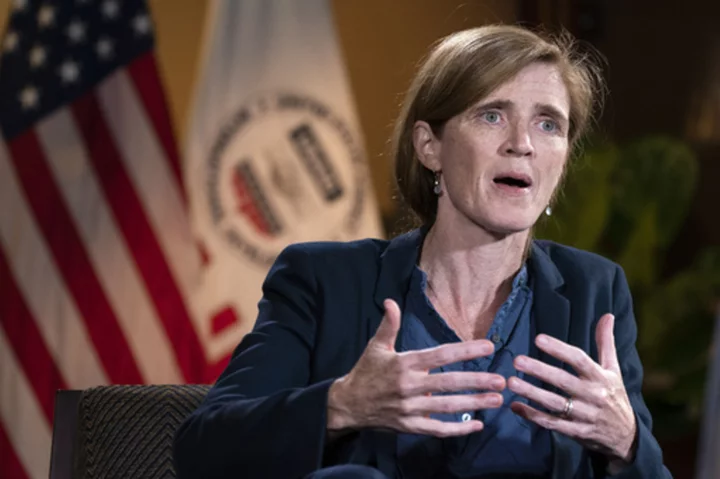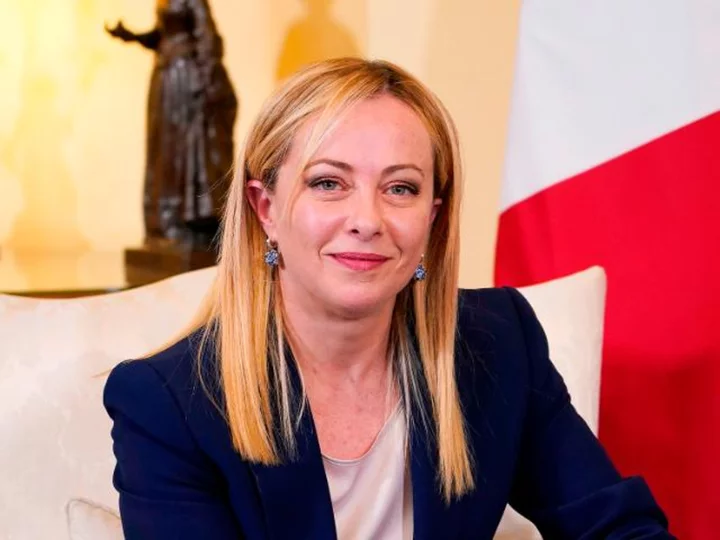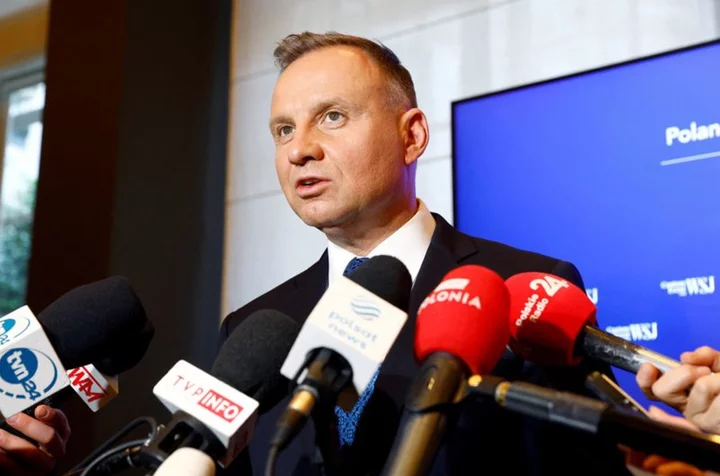PRISTINA, Kosovo (AP) — The United States’ top international development official on Friday said Washington is focusing on the urgency of normalizing relations between Kosovo and Serbia in EU-brokered talks between the two former war foes.
USAID Administrator Samantha Power has been in Kosovo for the past two days, following a three-day visit to Serbia.
As the most senior representative of U.S. President Joe Biden to visit Kosovo recently, she said her country's focus now was on “the importance of implementation of the agreements that will produce a normalization that will be incredibly important for Kosovo and for Serbia.”
Over the two days of her trip, Power visited a local farm and food processing facility. She met with young entrepreneurs at a hub for innovation and also spoke to young peacemakers bridging divides between Kosovo and Serbia.
“Normalization is going to be really, really good for business,” she said at a news conference. “The good that normalization will do for the young people of this country cannot be overstated.”
In February, Kosovo's Prime Minister Albin Kurti and Serbian President Aleksandar Vucic met and gave tacit approval to the EU’s 11-point plan. During a March summit in North Macedonia, the two leaders tentatively agreed on implementation.
“We are hopeful that the parties will come to the next stage of EU-mediated discussions with very specific proposals,” said Power.
Washington and Brussels have stepped up efforts to help solve the dispute, fearing further instability in Europe as the war rages in Ukraine.
Both Serbia and Kosovo have been told they must normalize relations to advance in their intentions to join the EU. The two sides have tentatively agreed to back an EU plan on how to proceed, but tensions continue to simmer.
Power acknowledged the political choices ahead for both countries were very difficult.
“That’s why they lie ahead. If they were easy, they would have been choices made a long time ago,” she said.
Power spoke on two contesting issues, first urging Kosovo to proceed on the establishment of an association of Serb-majority municipalities in Kosovo, which would coordinate work on education, health care, land planning and economic development at the local level.
A 2013 agreement on that plan was later declared unconstitutional by Kosovo’s Constitutional Court, which ruled that it wasn’t inclusive of other ethnicities and could entail the use of executive powers.
Power also urged Kosovo Serbs to return to their jobs in local government institutions in the north of the country, where most of the ethnic Serb minority is located. They boycotted those posts in November and a snap election vote last month in protest at the establishment of the association.
The conflict in Kosovo erupted in 1998 when separatist ethnic Albanians rebelled against Serbia’s rule, and Serbia responded with a brutal crackdown. About 13,000 people, mostly ethnic Albanians, died. NATO’s military intervention in 1999 eventually forced Serbia to pull out of the territory.
Washington and most European Union countries have recognized Kosovo as an independent state but Serbia, along with Russia and China, has not.
___
Semini reported from Tirana, Albania.
___
Follow Llazar Semini on Twitter: https://twitter.com/lsemini









